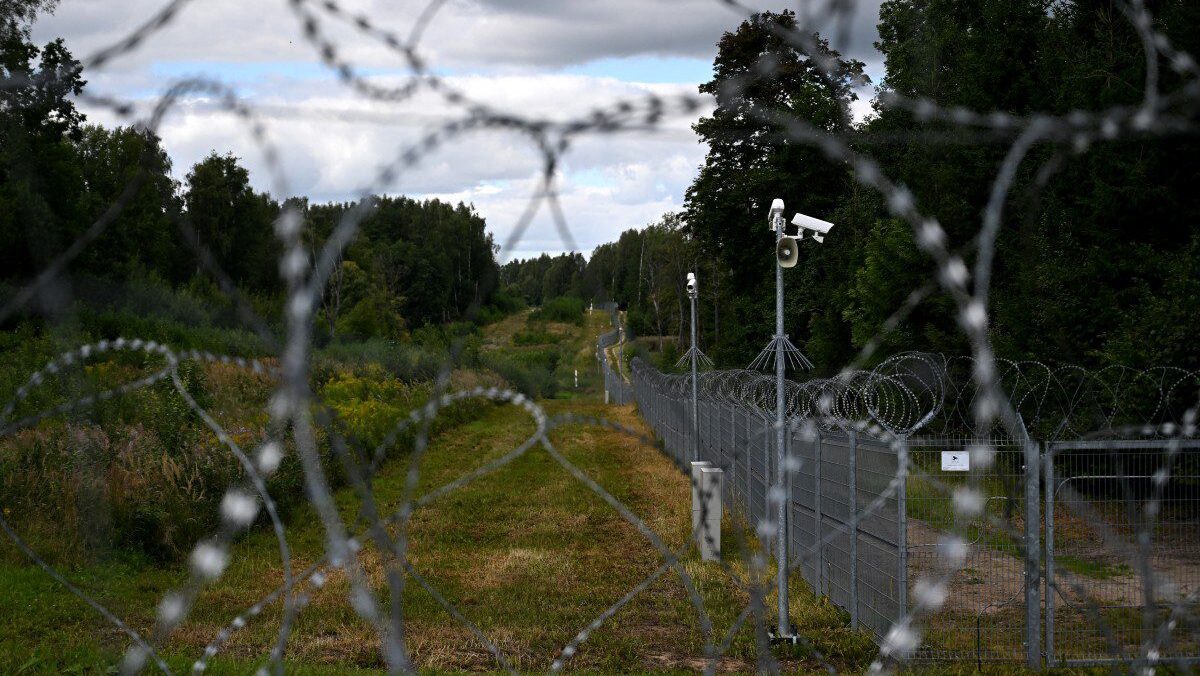Both left- and right-wing mainstream parties in Germany are now trying to outbid each other in anti-migration policies to avoid losing more voters to the right-wing populist Alternative für Deutschland (AfD), following its spectacular election showings in the three East German states in recent weeks.
The socialist SPD-led government (allegedly) made a deal with Turkey last week to send back failed asylum seekers in exchange for easier tourist access; while the centrist CDU—the European Commission president’s own party—now demands E U assistance for external border protection infrastructure in Poland and Greece.
It took nine years, but Angela Merkel’s former party went from inventing Willkommenskultur to paraphrasing Trump, by pushing to ‘build that wall, and make Brussels pay for it.’
“I expect the Federal Government and the EU Commission to ensure that we do not abandon states by the external borders such as Poland and Greece,” Alexander Throm, the CDU’s lead MP on home affairs said in an interview on Monday, September 30th.
Both Poland and Greece have already erected fences along their external borders with Belarus and Turkey to combat illegal migration, but could still benefit from additional funds to extend and strengthen these barriers.
Interestingly, Throm didn’t mention Hungary, which spent over €2 billion on building and maintaining its 200km double fence on its border with Serbia and is now being fined by Brussels for using it as intended. But while both the Polish and Greek governing parties belong to the European People’s Party (EPP), CDU’s European parliamentary group, Hungary’s Fidesz, as part of the Patriots group, gets a different treatment.
Nonetheless, the CDU deputy was clear about wanting the EU to foot the bill for more border walls: “This is a task that affects us all. And anyone who wants secure borders must also commit to border fortifications,” Throm added, including“structural and technical border protection where necessary.”
Throm’s remark is a subtle jab at Commission chief Ursula von der Leyen who repeatedly ruled against funding walls, fences, and other physical barriers from the EU’s common budget, and so far only agreed to disburse money for “smart solutions,” such as surveillance tech, drones, and vehicles.
The CDU itself was not a big fan of jointly funded external border protection before either, but it seems the surge of AfD in eastern Germany was enough to prompt a more radical position, even taking the fight to Brussels.
It’s clear that the CDU is preparing to take back the government next year—with its leader, Friedrich Merz set to become the next German chancellor—but it will need to lead AfD with a wide margin to avoid being forced into a coalition with them or multiple parties on the Left.
Chancellor Scholz criticized the CDU’s push for jointly financed border walls for the same reason CDU opposed them a few months ago, namely that it would require increasing the EU’s entire joint defense budget. Instead, Scholz suggested boosting the budget of Frontex, the EU’s border agency, as an existing source of non-defense protection.
Meanwhile, Scholz is trying to stay true to his word after promising to ramp up deportations following a series of deadly Islamist attacks these past few months by failed asylum seekers—including one in Solingen, where a Syrian knifeman killed three and wounded eight others in late August.
In exchange for easing visa rules for Turkish citizens wanting to travel to Germany for holidays or business purposes, Ankara supposedly agreed to a deal that would soon see 500 failed asylum seekers deported back to Turkey per week (up to a total of 13,500), at least according to the German government.
“We have now reached a point where returns to Turkey can be carried out more quickly and effectively and that Turkey will more speedily take back citizens who are not allowed to stay in Germany,” Interior Minister Nancy Faeser said in a statement on X. “This is another building block in limiting [illegal] migration.”
The exact details of the agreement remain unclear, however, as Turkey denies having any kind of deal on the table, saying that the issue was not even on the agenda during the recent meeting between Chancellor Scholz and President Erdogan.

